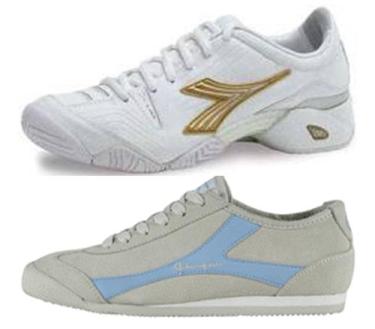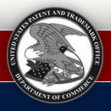Ethiopian Officials Talk About Coffee Designation Pact with Starbucks
The Seattle-based Coffee Politics blog has an interesting interview with Ethiopian officials about the June settlement of Ethiopia’s dispute with Starbucks Corp. over the marketing and licensing of three of Ethiopia’s specialty coffee designations. The blog interviewed Samuel Assefa, Ethiopia’s ambassador to the United States, and Getachew Mengistie, director of Ethiopia’s Intellectual Property Office, who negotiated the deal with Howard Schultz and Dub Hay from Starbucks. Background on the pact from The Seattle Times is available here.
Of particular interest to trademark practitioners is why Ethiopia pushed for terms in the parties’ agreement that defined Ethiopia’s rights in terms of its coffee “designations” rather than its “trademarks.” Here’s an excerpt from the interview:
”Coffee Politics: The joint press release between you and Starbucks states that you ‘have concluded an agreement regarding distribution, marketing and licensing that recognizes the importance and integrity of Ethiopia’s speciality coffee designations.’
What’s the difference between this agreement and the one that was announced in February 2007? What does ‘designation’ refer to here? Is it related to ‘certification’ or ‘Geographic Indication’? We learned from your letter published on Addis Fortune that there is a signed agreement with Starbucks, is that true?
Getachew Mengistie: Yes, a signed document is in place. ‘Designation’ is a term broader than ‘trademark’ and protects Ethiopia’s benefits as it encompasses some of the trademarks that are still pending registration. ‘Designation’ is not related to certification.
Samuel Assefa: ‘Designation was preferred for a variety of reasons. The term covers both speciality coffees which are trademarked and the ones that have not been trademarked. If we said ‘trademark,’ we would have left out the ones that are not registered as a trademark. We got more in ‘designation.’
Getachew Mengistie: Ethiopia has at least the rights in Common Law.
Samuel Assefa: The term ‘designation’ is broadening the scope for Ethiopia — broaden the horizon that is. Starbucks [on its part,] wanted to ensure all specialty coffees are covered. So, the choice of ‘designation’ was mutually agreed upon.
Coffee Politics: Getachew, you mentioned Common Law. Could you explain what it has to do with the agreement?
Getachew Mengistie: There are some countries where Common Law is recognized. For example, in Canada trademarks, not Common Law, is recognized. Common Law is recognized in Japan but not in France. So, the recognition of Ethiopia’s Common Law rights enhances the position of Ethiopia [where the trademarks are pending.]
Samuel Assefa: Starbucks is global, operating in different legal systems. We didn’t want to lose the advantages in all continents. Common Law applies in countries where it is recognized.”
Payless Shoesource Sued Again for Infringement Over Athletic Shoe Logo
On July 27, athletic shoe maker Diadora S.p.A. and its Kent, Wash.-based subsidiary, Diadora America, Inc., filed suit in the Western District against Payless Shoesource, Inc., for trademark infringement, dilution, and unfair competition over Payless’ competing shoe logo. It is only five weeks since Payless settled a case with Brooks Sports, Inc., involving similar allegations. (STL’s coverage of that suit here and here.)
Diadora’s complaint alleges that in the last sixty days, Payless began manufacturing, promoting, offering for sale, and selling a new line of shoe called the CHAMPION® Idol Athletic that is substantially identical to Diadora’s shoe logo.

Diadora’s logo (top) and Payless’ allegedly infringing logo
The complaint states: “Diadora’s advertising and promotional activities involving its products bearing the Diadora Logo have been continuous and have been for the purpose of acquainting the public with the excellent quality of Diadora’s products so that consumers may, with knowledge and confidence, purchase and use products bearing the Diadora Logo. As a result, Diadora products bearing the Diadora Logo are well known, and the Diadora Logo has come to be and [is] recognized by the public as indicating that the products bearing the Diadora Logo originate with Diadora.”
 Diadora further alleges: “Payless’ use of the Infringing Logo, a mark substantially identical and therefore confusingly similar to the Diadora Logo, in a similar manner in connection with identical and highly related goods, constitutes trademark infringement” of its registrered trademarks including Reg. No. 1,324,537 (depicted above).
Diadora further alleges: “Payless’ use of the Infringing Logo, a mark substantially identical and therefore confusingly similar to the Diadora Logo, in a similar manner in connection with identical and highly related goods, constitutes trademark infringement” of its registrered trademarks including Reg. No. 1,324,537 (depicted above).
Payless has not yet answered Diadora’s complaint. It appears that Payless has removed references to the subject she from its Web site.
The case cite is Diadora S.p.A. v. Payless Shoesource, Inc., No. 07-1171 (W.D. Wash.).
PTO Road Show Visits Seattle with Anticounterfeiting Seminar
 On Aug. 10, the U.S. Patent and Trademark Office will travel to Seattle to present a program titled “Anti-Counterfeiting & Piracy 2007.” Scheduled speakers include Washington State Attorney General Rob McKenna, Microsoft Corp., Lisa Chissus from Flex-a-lite Consolidated, John Koeppen from the PTO, and Brad Huther from the U.S. Chamber of Commerce.
On Aug. 10, the U.S. Patent and Trademark Office will travel to Seattle to present a program titled “Anti-Counterfeiting & Piracy 2007.” Scheduled speakers include Washington State Attorney General Rob McKenna, Microsoft Corp., Lisa Chissus from Flex-a-lite Consolidated, John Koeppen from the PTO, and Brad Huther from the U.S. Chamber of Commerce.
The program brochure states: “At this important event you’ll learn what federal and state government resources are available to protect your brand, how you can work with law enforcement to safeguard your intellectual property, how to protect your supply chain here and abroad, and what the U.S. Chamber is doing to defend American business as a whole.”
The program runs from 10 a.m. to 3 p.m. at the Westin Bellevue and includes a free lunch. Interested persons can register here. I plan to be there, so please say hello if you decide to attend.
The PTO and co-sponsor U.S. Chamber of Commerce will make similar presentations in Burlington, Vermont, on Aug. 17 with Sen. Patrick Leahy, and Los Angeles/Long Beach on Aug. 21.
STL Welcomes New Seattle Trademark and Branding Blog "Beauty Marks"
The Trademark Blog today put me on to a new Seattle-based trademark and branding blog called “Beauty Marks.” (Geez, scooped in my own back yard!) It’s published by Jessica Levy of the Law Office of Jessica Stone Levy, PLLC, who until recently based her trademark prosecution practice at Preston Gates & Ellis/K&L Gates.
Ms. Levy describes her blog as “miscellaneous thoughts about trademarks and branding.” Her inaugural posts discuss how she met her husband (a trademark litigator, no less), using the TM designation, and the basics of trademark law from the perspective of a cosmetics shopper. She expects to “Comment on what I like, what I don’t, what’s trendy and what’s stodgy, what makes sense from a trademark perspective and what makes my hair stand on end.”
Sounds like a lot of fun. Welcome to the club!
First U.S. Registrant Offers to Sell MUGGLES Trademark for $1 Million
I came across an interesting piece — the Ventura County Star reported on July 22 that California native Jim Salzer owns the first U.S. trademark registration for MUGGLES, which he had planned to use in connection with a nightclub to be called “Cafe Muggles.” The nightclub never got off the ground, but Mr. Salzer liked the sound of it so he held onto his registration, which he obtained in 1981. The word “muggles,” of course, entered the popular lexicon as a word for for people without magical powers beginning in June 1997 when J.K. Rowling published her first “Harry Potter” book.
Now, Mr. Salzer wants to sell his MUGGLES mark to Warner Bros., which owns the “Harry Potter” movie and merchandising juggernaut. His asking price? $1 million. Warner Bros. has refused to bite and now, the article says, Mr. Salzer is keeping a “watchful eye” on its use of the word.
I don’t know why. The article doesn’t indicate that Mr. Salzer ever put the mark to use, other than as a cat character with that name that he’s used in “advertising and products over the years.” If he hasn’t put the mark to trademark use — that is, to identify the source of goods or services — he doesn’t have any trademark rights to “sell.” However, the Patent and Trademark Office’s database confirms he has made at least some trademark use. It states he first used the mark in commerce in 1979, and that Mr. Salzer filed his ten-year affidavit of continued use in 2001. Yet, even if Mr. Salzer has continuously used MUGGLES as a trademark, his registration is for “retail gift and novelty store services, and restaurant and night club services.” Therefore, unless Warner Bros. opens a gift shop, restaurant, or nightclub under the name “Muggles,” I wouldn’t think that Mr. Salzer would have much of a case.
That’s one bit of trademark law Leo Stoller overlooked when he offered to license GOOGLE to Google and STEALTH to Columbia Pictures when it was marketing its movie, “Stealth.” (Background via the TTABlog here and here.) Indeed, that little flaw in Mr. Stoller’s business model led to his downfall as a trademark wheeler-and-dealer.
Speaking of Mr. Stoller, I can’t resist noting that the bankruptcy court for the Northern District of Illiniois yesterday reportedly auctioned off his trademark portfolio, such as it is. One of the bidders? A company calling itself the “Society for the Prevention of Trademark Abuse LLC.”
I’ve got some ideas, but someone really has to fess up to who’s behind this outfit.
The Stoller bankruptcy auction (and saga) continues. See Lance Johnson’s comment below for details. Lance, thanks much for bringing us up to date!